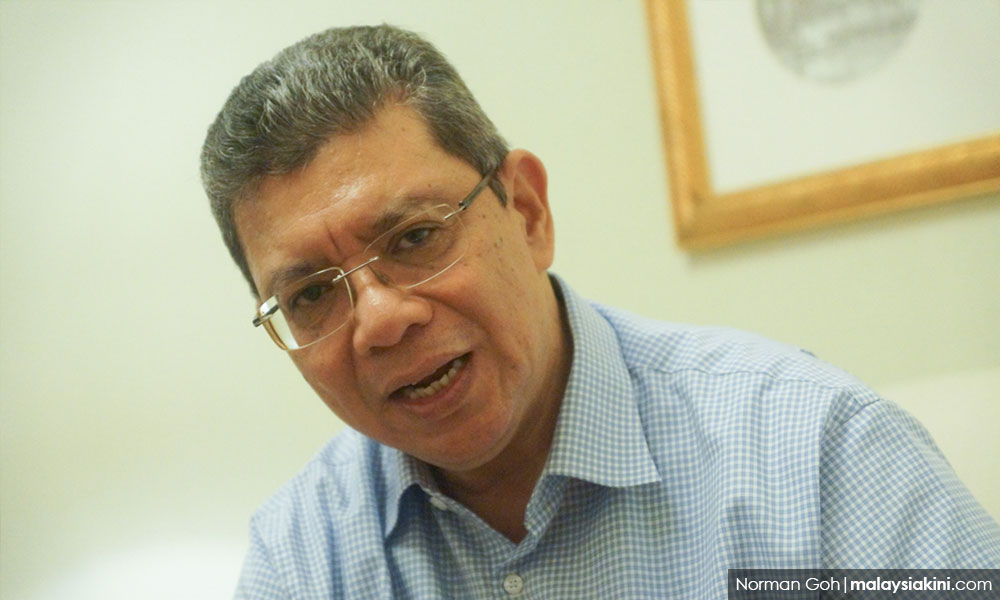
Diplomacy, as some would have it, is the art of “telling someone to go to hell in a way they look forward to the trip”.
Although this quote might appear on the favourite coffee mug of many United Nations officials and diplomats, the truth of the matter is, diplomacy is meant to be a life saver and invariably, a geopolitical game changer, at critical moments in history.
Take the crisis in Myanmar and China, for instance. Close to 700,000 Rohingyas are being persecuted in Myanmar, of which another one million are in "re-education" camp in China.
If Malaysia’s Foreign Minister Saifuddin Abdullah is expected to be gingerly tactful and polite - which he already has been since day one - such humanitarian crisis could careen into what political scientists call "complex humanitarian emergencies" (CHE).
A CHE is when an originally solvable problem degenerates into an intractable issue that now confronts the international community, whether to resort to war to separate the enemy combatants or to persist with the use of forceful, perhaps coercive, diplomacy to divert the issues from the path of disaster back to the normal trajectory of peace and civility.
Either way, diplomacy cannot be built on deceit let alone deception.
When a foreign minister feels deeply about another country, he or she should say it outright. Saifuddin, in a sense, was not wrong to tweet about his dislike of two countries which he was about to visit.
If one goes by the gold standard of contemporary diplomacy, there are two templates at the UN now. Both contradict one another in form and style.
The first kind takes place at the UN General Assembly, where diplomats from all over the world, and their leaders too, converge in New York City to “vent”; Prime Minister Dr Mahathir Mohamad is about to let it rip when he speaks at the United Nations tomorrow.
On the other hand, at the UN Security Council, as far back as 2000, the council’s five permanent members have resorted to using secret, back-room and stealth-like diplomacy, to do whatever they want, without the consent of the council’s non-permanent members.
Meaning, the US, China, UK, France and Russia often do things away from the prying eyes of the non-permanent members.
The net effect in the UN General Assembly, however, while normally hortatory (full of talk and no action) does become what the late US permanent representative to UN Jeanne Kirkpatrick called "the Turkish bath". The general assembly is where the whole world lets off steam, express their frustrations, and some even walk out.
Unseemly as these diplomatic practices are, they help countries, great and small, to keep their frustrations well managed.
At the UN Security Council, there is also another diplomatic method and ethos applied, where the five permanent members either attack each other’s views and values by exercising their right to veto any decision or to abstain themselves (from their vote of hands).
Either way, diplomacy cannot be understood as purely being "nice".
The Foreign Affairs Ministry is not a five-star hotel where the customer is always right and smiles must always be the fixture of all the staffs.
Diplomats are trained to speak their mind, either firmly or politely, short of triggering a wild fire of outlandish conflicts and verbal tit for tat.
It is disingenuous that Kepala Batas MP Reezal Merican and Rembau MP Khairy Jamaluddin have asked Saifuddin Abdullah to shape up in his speech acts. "Behave as a diplomat," Khairy tweeted, while Reezal told the minister to "consult with senior officials" before speaking. Both of them are wrong.
The Foreign Affairs Minister is given the leeway to walk out of the room, stand up to raise a point, even tweet about his feelings - especially when the countries in questions have been red flagged by the international community for a spectrum of egregious violations of rights and conventions.
Saifuddin is the diplomat-in-chief of Malaysia as well as of the Pakatan Harapan government.
At a time when Mahathir is about to speak on "The Future of Asian Democracy," at the Chatham House in London, it is all the more important why Saifuddin should speak his mind.
It is here, the headquarters of the Royal Institute of International Affairs, that the “Chatham House Rule” was formed in 1927. The rule, which states that speakers can express their personal views even if they are not be in line with their organisation’s, is meant to increase openness of discussing public policies and current affairs.
Being honest, in a glib or tactful manner, is not the equivalent of being grouchy and grunge. Saifuddin, one of the most genteel Malay politicians to have emerged in Malaysia, should be encouraged to speak his mind.
Those who are offended, such as Reezal and Khairy, seem to forget that they were once afraid to speak the truth to ex-prime minister Najib Razak too.
This contributed to a humongous 1MDB debt bomb, for which neither of them have offered an apology to Malaysians, who now carry a debt of about RM 34,000 each for decades to come.
The insistence on being polite in politics is rubbish, as there is just too much at stake to be nice all the time. Thumbs up for Saifuddin for calling a spade and spade, short of poking a stick into the eyeball of those countries he dislikes. Pakatan Harapan one; Barisan National (or what remains of it) zero.
PHAR KIM BENG was a multiple award-winning Head Teaching Fellow on China and Cultural Revolution in Harvard University. - Mkini
No comments:
Post a Comment
Note: Only a member of this blog may post a comment.